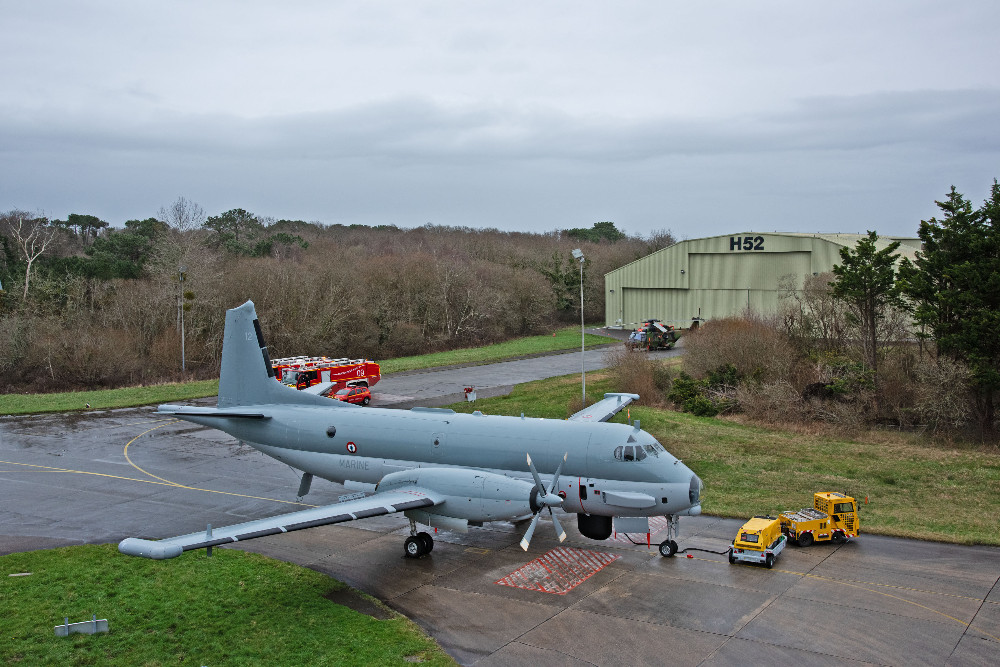Abstracts
Articles in the French and English editions of RDN this month
How to make France strategically competitive in the twenty-first century? - CID-ENA-HEC
The seminar that the CID (Joint Services Defence College), ENA (École Nationale d’Administration) and HEC (School for Advanced Business Studies) are going to hold jointly at the École Militaire is intended to situate military and civil service decision-makers alongside industrialists, all with a shared strategic culture, with a view to the joint development of ways and means, in a study oriented to-wards action in France’s interests.
Food insecurity can destabilize the world* - Jacques Diouf
The Euro-Atlantic region: equal security for all* - Sergei Lavrov
Progressive generalisation of NATO’s rules of engagement - Ferdinando Sanfelice di Monteforte
By re-examining the origins, naval and behavioural, of NATO’s rules of engagement during the Cold War, it is easier to understand that they help us today to find effective tactics in asymmetric conflicts, and to ensure military superiority without resorting to escalating violence.
Rules of Engagement, a juridical subject? - Guilhem Brouard and Antonin Tisseron
Reminding us that Rules of Engagement control and regulate military coercive action, the authors show that they have encouraged a progressive integration of the Armed Forces in an ever changing and more complex environment. But they are still the unavoidable instrument of political control over military action, and an irreplaceable medium of operational coherence.
On the strategic influence of elementary particles - Benoist Bihan and Michel Goya
The Iraqi experience of a radical and progressive evolution in the performance of American regular forces is the thread that runs through this study of the transformation of the tactical situation that has helped to swing local alliances and successfully carry out operations in populated areas.
Rules of engagement: irregular rules - Olivier Kempf
The irregular conflicts that multinational coalitions conduct today require clear rules in order to harmonise tactical, political and media demands. More than a restrictive framework, they are a crucial basis for military action.
Middle East countries in a terrible state - Antoine Sfeir
In this vast retrospective, the author explains the progressive eviction of Arab states from the general governance of the Middle East. Under American pressure, a system organised around new poles has been surreptitiously installed. Missing from the picture is Iraq, in a process of dislocation, and Iran, on the way to normalisation.
Iran: what nuclear sanctuary?* - Pierre Viaud
The author continues his study of Iran and its implicit nuclear strategy by showing us the three circles of sanctuary that it contains. He shows to what extent this country, with its strong and ancient geo-political identity, has managed to restore its rank at the centre of the geo-strategic and geo-economic chessboard of the region.
Yemen: a new strategic challenge? - Pierre Berthelot
This study of the strategic situation of Yemen goes beyond the internal complexities of the Emirate to reveal the evolving Middle Eastern strategic equation. The cleavages between Arabs and Persians, between Sunni and Shia Islam, are leading to some surprising adjustments.
The Mediterranean: an inventory - Mustapha Benchenane
In a detailed review of the different stages of a strategic Mediterranean integration yet to be achieved, the author invites us to look beyond the roots of intrinsic conflict in this key region, both a forum of populations and a bridge between continents, with a determined search for mutually advantageous solutions.
The challenges of French military implantation in the Gulf - Mourad Chabbi
The implantation of a French military base in the Gulf places France in a strategically important region. With the Strait of Hormuz, this zone is the unavoidable route for half the world’s fuel oil. Notwith-standing the modest size of its deployment on Emirate soil, France intends to show its commitment in this sensitive area.
What reforms for the Lebanese Army? - Hugues Latournerie
Some Lebanese politicians and analysts propose a reorientation of the classic concept of the Lebanese Army towards an anti-guerrilla structure. Attractive as this may appear, the project does not, however, take into account numerous local and even international realities.
A strategy against al-Qaeda - Hugo Hanne
By re-examining the history of al-Qaeda, its regional dimension, its criminal activities and its rabble-rousing, it is possible to amplify and strengthen the fight against Islamic terrorism. The anti-terrorist battle also calls for intellectual and moral resolve.
Gallieni’s three operational principles - Jean-Marc Giraud
Know the ground, respect its ethnic, political and social structure, win over the population: these were the rules learned in colonial times, and applying them could change the stakes in the Afghan conflict.
Intelligence and peacekeeping operations? - Guillaume Dujon
The question of intelligence has always been one of the most difficult to deal with in peacekeeping operations, particularly in the UN. The successful experience of a strategic military cell established with UNIFIL 2 opens up the prospect of real progress in this sensitive but decisive area.
The Quai d’Orsay Crisis Centre - Laurent Kuntzmann
Current crises demand complex responses: military, political, humanitarian, and economic. Reorganisation of the Armed Forces offers a good opportunity to create a global conflict management structure, on the lines of the Quai d’Orsay Crisis Centre.
‘France-Russia 2010’: cooperation and defence - Andrei Perminov
The year 2010 is propitious for a Franco-Russian rapprochement in defence and security matters. Political-military cooperation recently made significant progress, of which the author, a student at the CID (Joint Services Defence College), draws up a balance sheet and ponders future developments, particularly in the military-technical sector.
The art of war and the under-15s - Bernard Vaudour-Faguet
Transposing the art of war into the inner-city universe, this stimulating approach is a stylistic exercise that serves as a warning. The ingredients of warlike violence are present today in our inner cities, on our soil. Can we ignore them?
The strategic situation in Asia: stability and tensions* - Daniel Schaeffer
The UK-France defence relationship* - Paddy Ashdown
Turkey’s foreign and security policy: an asset for Europe* - John Greenway
* The full text of articles marked with an asterisk is published in the English edition of this month’s RDN.






_astronaut_Sophie_Adenot_(jsc2025e058846_alt).jpg)

